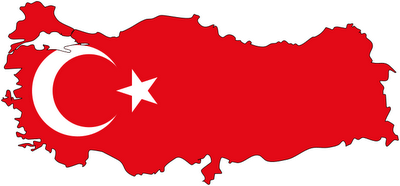The exodus began several days before Turkey closed down for the Feast of the Sacrifice. For devout Muslims, Eid al-Adha is an important annual milestone linked to the pilgrimage to Mecca and to a test of their faith.
Many of the travelers I encountered at İstanbul Atatürk Airport, dressed in light-colored garb, were clearly on their way to Mecca. But for many secular Turks, the holiday has lost some of its religious significance and it is above all a chance to escape abroad for a few days.
Over the past two decades, Kurban Bayramı has undergone a significant evolution in Turkey. I remember my surprise, in my first years in this country, when I saw blood flow freely in the streets of my neighborhood. In the days before the holiday, the pathetic bleating of tethered sheep resonated loudly through the streets.
Gradually, in line with rapid urbanization, the animals retreated to the outskirts and the slaughtering now takes place in designated parts of town, carried out by experienced butchers, thus sparing the animals unnecessary suffering. This year, the Directorate of Religious Affairs even advised families to keep young children away and avoid shocking them with the violence of the sacrifice. Animal rights and environmental groups are also increasingly suggesting that the sacrifice and the distribution of meat to the poor be bypassed altogether and replaced by financial donations to charitable causes.
Religious holidays for some, cultural traditions for others, special occasions punctuate the rhythm of life in all societies around the globe, providing opportunities to step away from the daily grind, spend time with family and remember those less fortunate than we are.
Americans will soon gather around their Thanksgiving turkey. What began as a harvest festival, a chance to give thanks for life’s blessings, has now lost most of its religious overtones. Today it is mainly seen as a cheerful meeting of friends and relatives around a table full of good food but as such, it retains all its importance. Christmas also centers on family spirit, but its present-giving aspect, exploited by the corporate world, has now grown out of proportion. In many European countries, Christmas lights have been on for weeks in preparation of the celebration on Dec. 25. Department stores have already rearranged their wares to encourage shoppers to spend on holiday gifts, prominently displayed.
In Turkey, religion remains more present in everyday life than it is in most Western nations, and Kurban Bayramı is for many Turks first and foremost a religious festival. But commercialism is clearly creeping in, too. Travel agencies have been advertising breaks in the sun in lieu of the traditional family reunions for weeks, and shopkeepers have done their best to attract customers with special offers ahead of the celebration.
Given the demands of modern urban life, moments when the frantic pace briefly stops are perhaps more needed than before. It is significant that even in the most secular Western countries, traditional holidays still bring countries to a halt. As more and more people suffer from the economic downturn, wreaking havoc on many economies, meetings with loved ones should also be a time to reflect about our way of life.
In Turkey, distributions of food to the poor remain a strong tradition, but one that merely addresses the symptoms rather than the cause of income imbalances. Across Europe, social rights enshrined in law had to a large extent replaced philanthropy and charitable giving as a means of helping the most disadvantaged in society, but savage budget cuts introduced recently in several countries will undoubtedly leave many people a lot poorer. The fight for a fairer world is clearly not one that can be confined to a few days a year.
İyi bayramlar!
NICOLE POPE
[email protected]
via Today’s Zaman, your gateway to Turkish daily news.


Leave a Reply